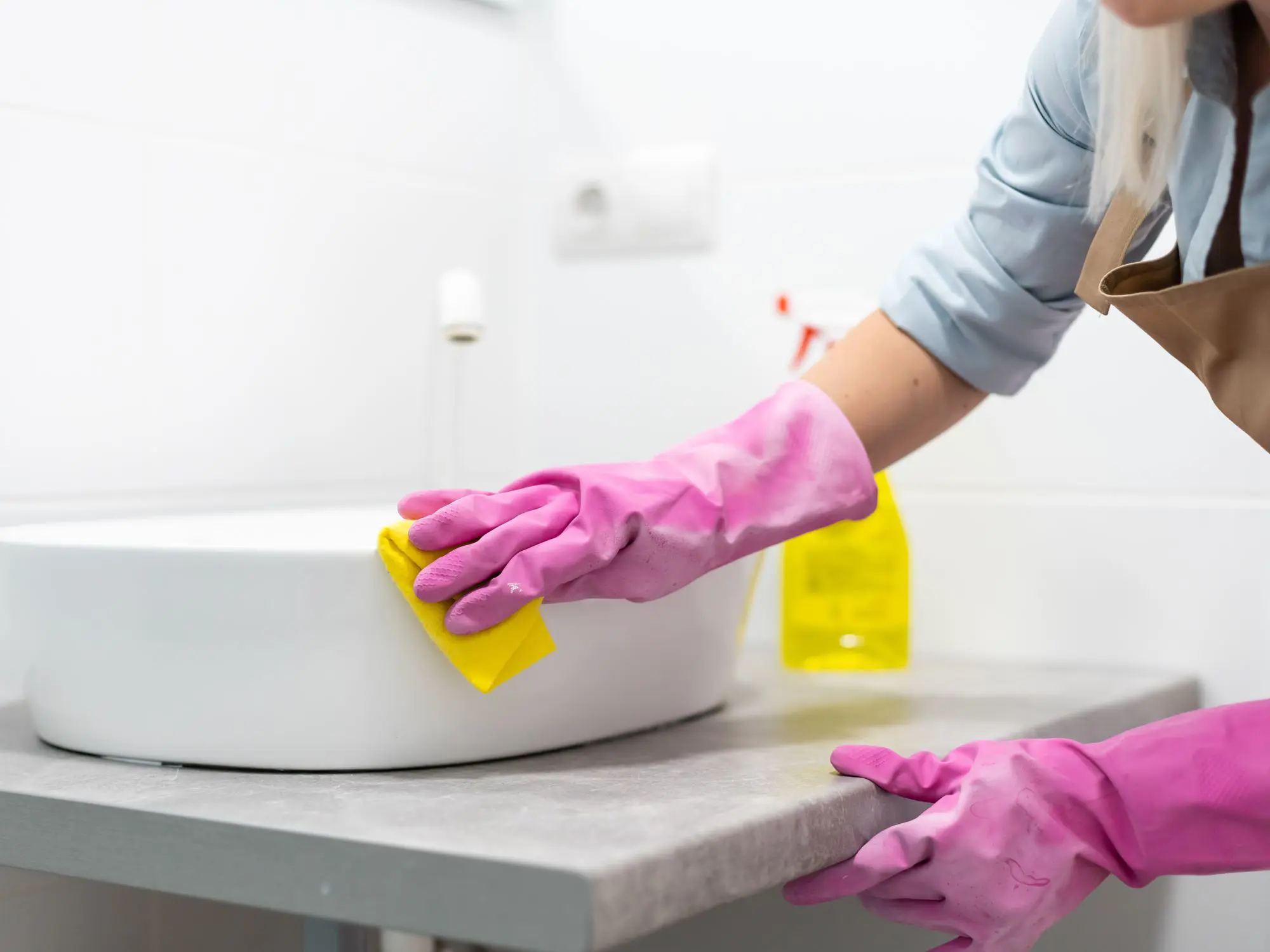Investment programme - aftercare
Check out our handy tips to look after your new boiler, kitchen or bathroom.
A few simple checks can help keep your heating running smoothly and your home warm.
General tips
- Know your controls – Learn how to use your thermostat and timer. It helps save energy and keeps your home comfy.
- Don’t block radiators – Keep furniture away so heat can spread properly.
- Bleed radiators if needed – If they’re cold at the top and warm at the bottom, they might need bleeding. Ask us if you’re unsure.
Combi boilers and heat pumps
- Check the pressure – If you’ve got a boiler, the pressure gauge should sit between 1 and 2bar. If it’s too low or too high, let us know.
- Don’t touch settings – Avoid changing system settings or valves – it could cause damage.
- Keep it clear – Don’t store anything around the boiler or heat pump. It needs space to work safely.
Keep it clean
- Dust around radiators – It helps heat flow better and keeps the air fresh.
- Wipe controls gently – Use a dry cloth or slightly damp one. No sprays or wet cloths near electrics.
- Check for leaks – If you spot water around the boiler, pump or pipes, report it straight away.
Top tips
- Report issues early – Strange noises, cold spots or error messages? Let us know.
- Service matters – We’ll arrange regular checks to keep your system safe and efficient.
- Use it wisely – Set your heating to come on when you need it, not all day.
Keep your kitchen clean, safe and working well with these quick tips.
Worktops
- Wipe after cooking – Use warm soapy water or a gentle spray cleaner.
- Avoid harsh scrubbing – Scouring pads can scratch the surface.
- Use chopping boards – Don’t cut directly on the worktop – it can leave marks.
Cabinets and doors
- Clean with care – A damp cloth and mild cleaner is all you need.
- Dry after cleaning – Moisture can damage the finish over time.
- Don’t slam doors – It can loosen hinges and damage the doors and cabinets.
Flooring
- Sweep or vacuum regularly – Crumbs and grit can scratch the surface.
- Mop with a mild cleaner – Avoid soaking the floor – a damp mop is enough.
- No bleach – It can stain or damage vinyl flooring.
Tiles and splashbacks
- Wipe down daily – Especially after cooking. It stops grease building up.
- Use a gentle spray – A bathroom or kitchen spray works well.
- Check grout – If it starts to look mouldy, clean with a grout brush or mould spray.
Cooker
- Clean after use – Wipe spills as soon as it’s cool.
- Use the right cleaner – Check the label – some sprays aren’t safe for hobs or ovens.
- Don’t block vents – Keep air flowing to avoid overheating.
Top Tips
- Ventilate while cooking – Open a window or use an extractor fan.
- Check for leaks – If you spot water under the sink or around appliances, report it.
- Keep it clutter-free – A tidy kitchen is easier to clean and safer to use.
Damp, mould and condensation
Your kitchen is somewhere in the house where you need to be especially careful about damp, mould and condensation.
We’ve got a dedicated webpage with information about damp, mould and condensation, what to look for, and how to report it.
A few simple steps can keep your bathroom fresh, clean and working as it should.
Bath and sink
- Wipe it down after use – A quick rinse and wipe stops soap scum and limescale building up.
- Use non-abrasive cleaners – Cream cleaners or diluted washing-up liquid work well. Avoid anything gritty – it can scratch the surface.
- Watch for blockages – Hair and soap can clog drains. Clear your plug holes and strainers regularly.
Taps
- Keep them shiny – Wipe with a soft cloth after use to stop water marks.
- No harsh chemicals – Stick to gentle cleaners. Bleach and strong sprays can damage the finish.
- Dripping tap? – Report it. It could waste water and increase your bill.
Tiles and grout
- Wipe down walls – Especially after a shower. It helps stop mould.
- Use a bathroom spray – A weekly clean keeps tiles looking good and grout fresh.
- Spot mould? – Try a mould remover spray. If it keeps coming back, let us know.
Toilet
- Flush regularly – Sounds obvious, but it helps keep the system working properly.
- Use toilet cleaner – A weekly clean keeps it hygienic.
- Don’t flush wipes – Even if they say ‘flushable’. Bin them instead to avoid blockages.
Flooring
- Mop up spills – Water on the floor can cause damage over time.
- Use a soft mop – Avoid soaking the floor. A damp mop is enough.
- No bleach – It can discolour vinyl flooring. Use a mild floor cleaner instead.
Top tips
- Ventilate – Open a window or use an extractor fan to reduce moisture.
- Check for leaks – If you spot a leak or damp patch, report it straight away.
- Keep it tidy – A clutter-free bathroom is easier to clean and safer to use.
Damp, mould and condensation
Your bathroom is somewhere in the house where you need to be especially careful about damp, mould and condensation.
We’ve got a dedicated webpage with information about damp, mould and condensation, what to look for, and how to report it.

